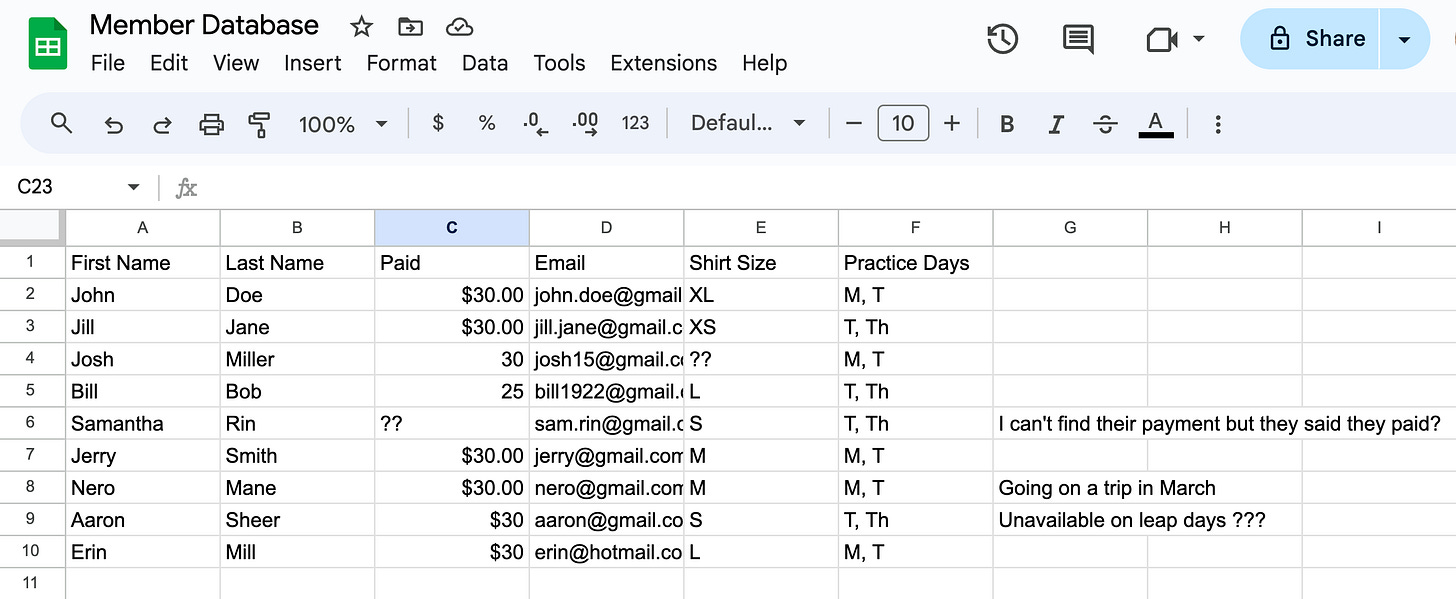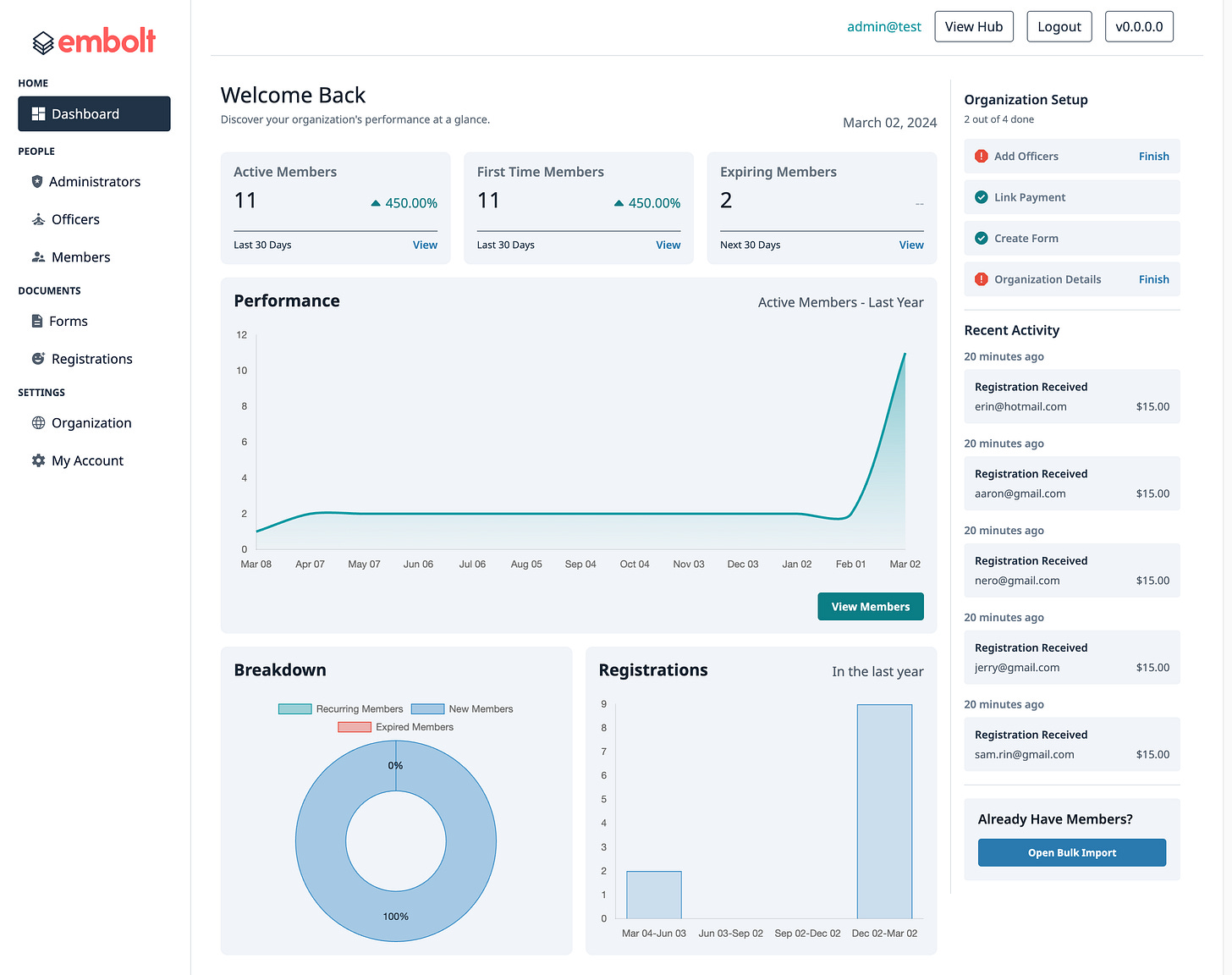Three Mistakes Every New Club Makes
Running clubs isn't easy, we take a look at three of the most commons mistakes new clubs make in 2024.
Clubs are one of the best ways to create communities of like-minded individuals and bring people together to share their interests. Across the world you can find clubs for a wide range of activities like:
Sports: Tennis clubs, Bowling leagues, Volleyball meetups
Gaming: Tabletop Meetups, DnD campaigns, Gaming cafes
Interests: Book clubs, Robotics clubs, Coffee clubs
Activism: Non-profit organizations, Shelters, Youth programs
The UNLV Mountain Club is a great example of a community of like-minded people sharing their passion for rock climbing — they use embolt.app to make managing their members and events easy.
Often time though, for the organizers running a club is a time consuming and difficult process. Most clubs share two things in common:
A need for capital (money) to fund fun activities
A lack of tools to effectively raise and manage their money
These two simple aspects can make managing a club a headache. Below we’ll cover three of the biggest mistakes new clubs can make, and we’ll also talk about what tools clubs can use to overcome them:
Mistake One: Using Spreadsheets in 2024
Spreadsheets are a tried and true method, but in 2024 Membership Management Software is easier than ever to use without high costs or big commitments.
If this looks familiar to you already, you might be familiar with the pain points of using spreadsheets to run your club:
Tedious Updates — because your spreadsheet doesn’t integrate with anything, nearly any changes or updates to members overtime needs to be manually done by you.
No Audit Trail — Samantha is sure she paid, but you can’t find her payment anywhere; do you just ask her to pay again or take her word? The lack of connected data means you’re at the mercy of how well organized your own members are
Difficult to Extrapolate — How many members are active? Who’s recurring and who just joined for the first time? Who needs to renew in the next 30 days? While possible to manage with a spreadsheet, this sort of information isn’t easily available.
Solution: Use a Membership Management Platform like embolt.app
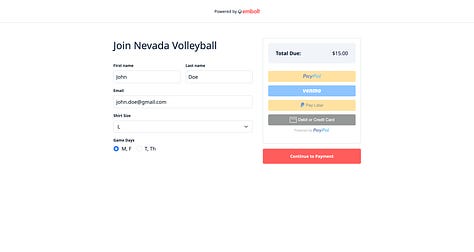
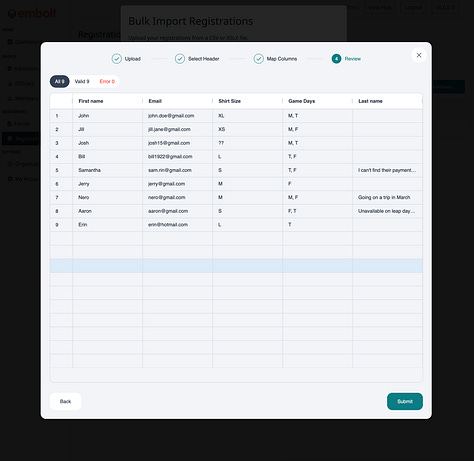
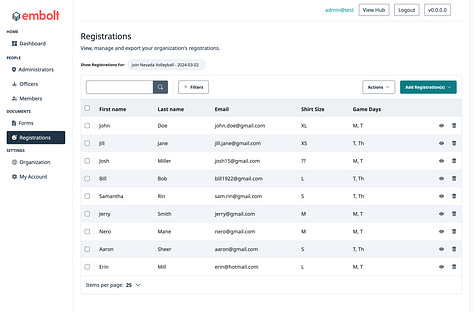
Member Management Platforms like embolt all you to quickly import your existing spreadsheet database, link your club’s PayPal, then share out your own personal hub to members to register and pay you directly through the platform.
The key benefits here are:
Fully Integrated Payments — Because embolt is an affiliated PayPal partner, transactions are sent directly to you but embolt can track and link payments to your members, giving you full confidence when a member has or hasn’t contributed dues
Auditable Activity — Next time a member asks you questions about their membership, you can quickly reference all of their registrations and make sure to give your members the most up to date information you have for them.
Built-In Metrics and Exporting — Get a birds-eye view at how your club is performing, alongside a view of your finances to help better plan events and fundraise activities.
Mistake Two: Using a Personal Bank Account
Personal bank accounts can quickly become a headache for growing clubs
It might be tantalizing to just use your personal bank account when first starting out, but personal bank accounts can not only be a liability risk to your club but also hamper your ability to make use of a 501 c3 status.
Personal bank accounts are a dangerous choice to hold club funds because:
Members Might Be Cautious: Club members might not feel comfortable sending you money personally if they can’t be 100% sure that you won’t misuse those funds down the road. Additionally, what happens if you take a smaller role in the club, do members have to constantly change who they pay?
Personal Banks Make Renewing Harder: If you decide to change payment information down the road because you have a new personal account, or someone else steps into your role to accept member dues, members might not pay simply because they don’t know who to pay.
Solution: Consider setting up a PayPal business account for your club. A business account allows you to take advantage of a 501 c3 status for reduced transaction feels, while also giving members a consistent way to pay and renew their membership.
Mistake Three: Skipping Outreach to Churned Members
Members who stop paying dues might not even realize they’ve done so
You’d be surprised to find that a lot of the time, members that churn (do not renew) often don’t even know they churned. Reaching out to these members often allows you to reconnect them with the community and they’ll renew dues.
Now if you’re using spreadsheets reaching out to members before they expire might be difficult, but if you’re using embolt.app it’s as simple as viewing your soon-to-expire members from the dashboard:
Once you’ve clicked “View” under the Expiring Members (Next 30 Days) you can export those found member’s email addresses to follow-up with:
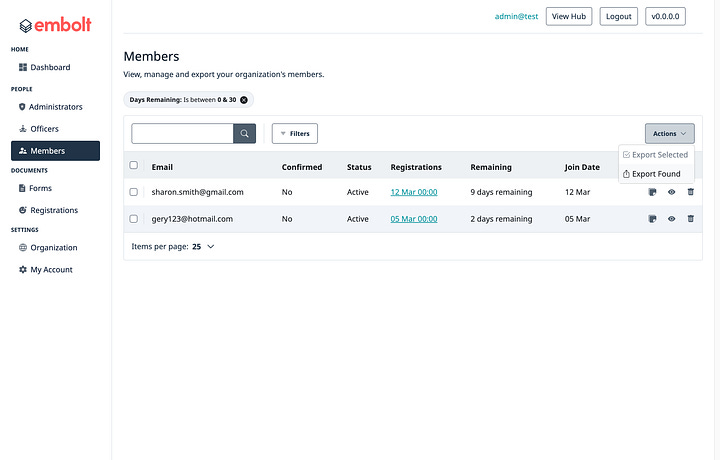
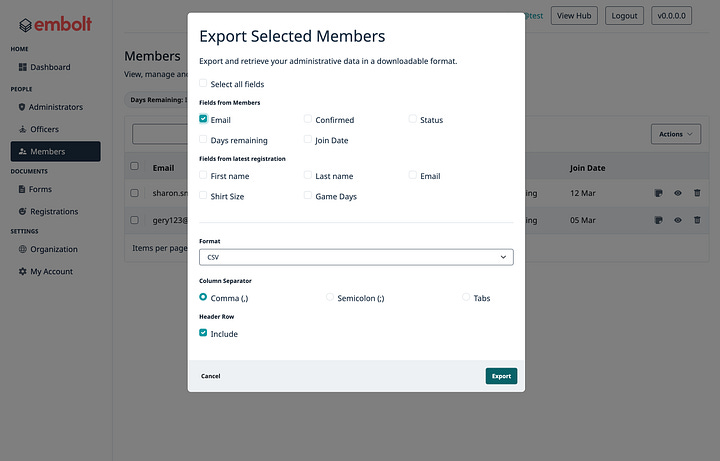
Conclusion
Starting or running a club in 2024 doesn’t need to be so difficult. A lot of the common mistakes that might have been unavoidable in the past have solutions today.
At embolt.app we want to democratize the tools that traditionally only large clubs and organizations had, that’s why our pricing model is the best in the space — no commitment, no sales demos, and no monthly fees.
If you’re interested in simplifying your club give us a try!




